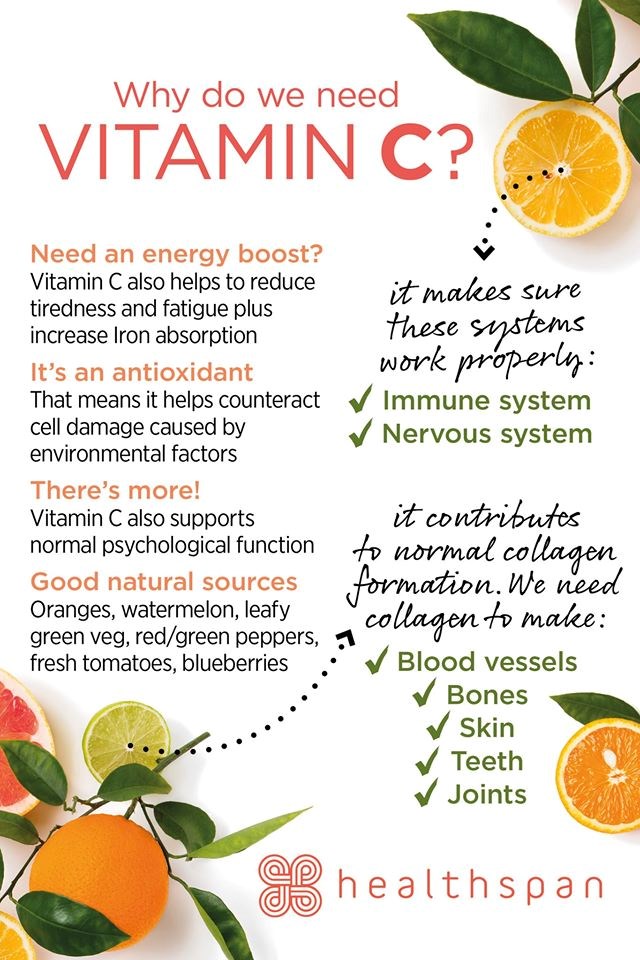Nutrition advice: Vitamin C
What does Vitamin C do?
Vitamin C, also known as ascorbic acid, is essential for at least 300 metabolic reactions in the body. It’s most well-known for the support it provides the immune system particularly after exhaustive exercise when the immune system is depleted, and the body vulnerable to infection. Vitamin C also has an antiviral action - put simply, viruses cannot replicate inside human cells if high levels of vitamin C (ascorbic acid) are present. Less well known is that Vitamin C also helps with the production of collagen - vital for healthy blood vessels, bones, cartilage, gums, skin and teeth – as well as maintaining energy levels and helping the body absorb iron, especially from plant sources.

Vitamin C and physical performance
Vitamin C is important for a normal energy-yielding metabolism and helps to reduce tiredness and fatigue, which is especially important for performance athletes. A study that assessed the effects of performing aerobic exercise to exhaustion, before and after taking vitamin C supplements for 30 days, found that men with a low vitamin C concentration had a significantly decreased physical performance. As an antioxidant, vitamin C is also popular among athletes, such as tennis players, to help reduce muscle soreness after exercise. By stimulating collagen production, Vitamin C may also help reduce cartilage loss and disease progression in osteoarthritis, while its anti-inflammatory action reduces joint inflammation, which enables tennis stars to maintain high levels of athletic performance.
Where do we get it from?
Vitamin C cannot be stored in the body, so regular intake is essential. Diet should always come first of course and Vitamin C is found mainly in fruit and vegetables including citrus fruits, green leafy vegetables, tomatoes and berries – an excellent reason to get your 5 servings a day. However, Vitamin C is one of the most unstable vitamins: up to two thirds is lost during food processing, cooking and storage and for this reason you may find a supplement useful.
Vitamin C and the sun
With many of us trying to make the most of our time outdoors (whilst keeping within safe social distancing rules), it’s worth knowing that in the skin, vitamin C helps protect against UV exposure to reduce sun damage and the effects of long-term sun exposure such as skin ageing.
How much vitamin C should I take daily and in this current climate?
The EU recommended daily intake for vitamin C (known as the nutrient reference value or NRV) is 80mg per day. This is the amount that is included in many multivitamins designed for adults.
Doses of above 1g of vitamin C per day may cause indigestion and have a laxative effect.
If you are taking any prescribed medication or have any medical conditions always consult your doctor or pharmacist before taking vitamins or supplements.
Supplements may be a good way to top up if you’re not eating enough fresh fruit and vegetables. However, first and foremost you should always aim for a healthy, balanced lifestyle including plenty of fresh fruit and vegetables, as well as regular exercise. Be sure to keep to government guidelines and be mindful of your own safety as well as the safety of others when exercising outdoors.
Don't miss out
